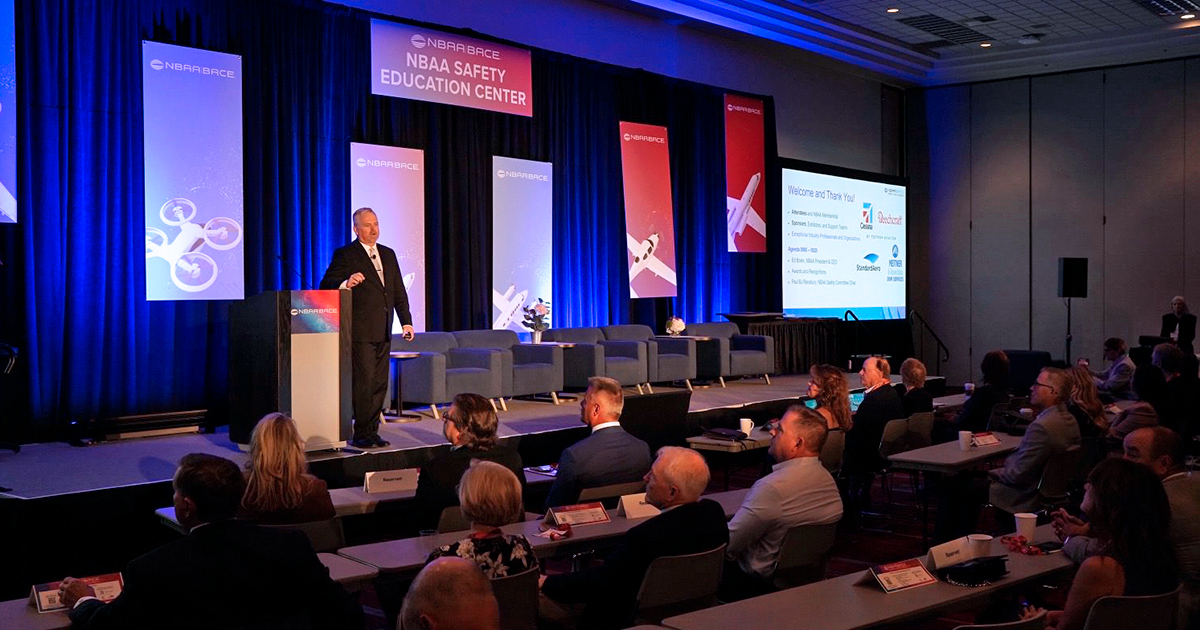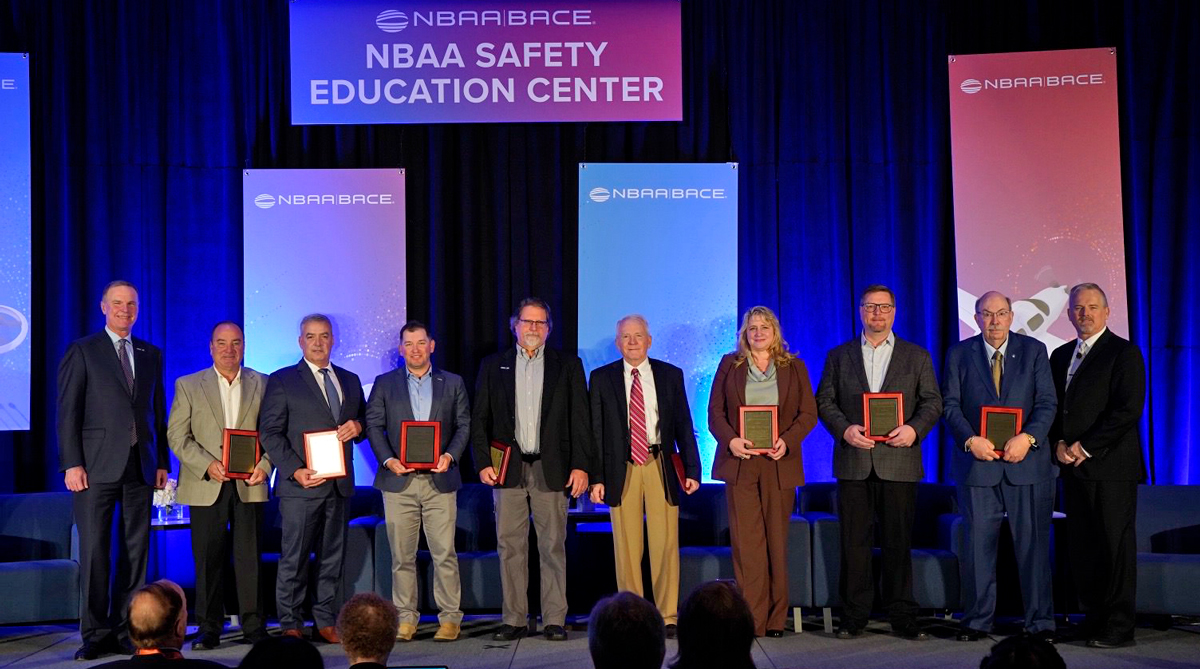National Safety Forum Concludes with Focus on Positive Safety Cultures Driving SMS

Oct. 19, 2023
Held throughout the 2023 NBAA Business Aviation Convention & Exhibition (NBAA-BACE), the NBAA National Safety Forum concluded the final day of the show with perspectives from top industry safety leaders, recognition of those who lead the safety discussion by example and discussions about the value of safety management systems (SMS) in developing an effective, positive safety culture.
“NBAA was founded in 1947 when 19 companies came together and said, ‘We need to come together and pool our resources and our expertise to foster aviation safety, to promote professionalism and to ensure access to airports and airspace,'” said NBAA President and CEO Ed Bolen in leading off the session.
“You’ll notice that safety was first,” he added. “That is our top priority, our core value, our North star. Business aviation cannot survive if we are not safe, and we are not perceived to be safe.”
Negative safety cultures run counter to that mission. “When I think of [safety] culture, I think of the predominant attitudes and behaviors that characterize your organization,” said NTSB member Michael Graham. “Some are threatening cultures, even punitive, which of course are not conducive to SMS.
“One accident we investigated involved [a flight department] that threatened their pilots so badly that we characterized their safety culture as toxic,” he added.
JD Witzig, vice president of aviation for Pfizer, noted safety cultures can be nurtured by frontline employees up through management, or vice versa. “You have to begin with being committed and then you have to be consistent,” he said. “You have to take your time [and] allow your team to see that this is the most important thing to you.”
That can be even more difficult when safety culture may conflict with pressure from company executives to complete a trip. “You must take the time to educate the executives you support on wherever the lines are drawn in sand and where the lines are drawn in concrete,” Witzig continued.
Past NBAA Safety Committee Chair Jeff Wofford recalled one such experience. “We had a salesman for a trip who was a real pain,” he said. “He shows up, sees us pushing the airplanes back in the hangar [because of poor weather] and went over my head to the CEO.
“The CEO asked him, ‘Does Jeff tell you how to sell our product? Then do not tell him when to fly,'” Wofford added. “The key is having senior leadership backing up the chief pilot. Even then, the sales guy told me, ‘I know you can take off zero-zero in Part 91!’ And I replied, “You can, but it goes against my ‘Preserve Jeffrey’ program.'”
NBAA Chief Operating Officer Chris Rocheleau, who formerly served with the FAA, noted the agency also grappled with those questions. “In 2015 when the [FAA] created the compliance philosophy, it had to reinforce with inspectors that [most] people are trying to do the right thing,” he said. “Just because there’s something wrong didn’t have to mean it was intentional.”
That shift in philosophy has also led to voluntary safety reporting programs that allow pilots to report potential safety issues without fear of repercussions. “[The FAA] has made that part of their daily routine and thought processes,” Rocheleau added, “and then translating it to how they regulate the aviation community writ large.”

The 2023 recipients of NBAA’s Flying Safety Awards, recognizing 50, 60 and 75 years of safe operations.
Another step in developing a flight department’s safety culture is to designate an employee specifically as safety officer, noted Bob Rufli with the Air Charter Safety Foundation. ‘We found a very clear distinction in organizations that have dedicated safety managers,” he said. “The organization moves forward much, much faster when that position exists.”
While it’s possible to have someone take on the safety role in addition to their primary position with the department, “things will move more slowly,” he continued. “It doesn’t mean it’s not a good environment for safety, but the minute someone is wearing two hats, safety becomes one other piece of their job function.”
The session also recognized this year’s recipients of NBAA’s Flying Safety Awards recognizing 50, 60 and 75 years of safe operations, as well as those who received the 2023 NBAA Dr. Tony Kern Professionalism in Aviation Award.
Any person who attends an NBAA convention, conference, seminar or other program grants permission to NBAA, its employees and agents (collectively "NBAA") to record his or her visual/audio images, including, but not limited to, photographs, digital images, voices, sound or video recordings, audio clips, or accompanying written descriptions, and, without notifying such person, to use his or her name and such images for any purpose of NBAA, including advertisements for NBAA and its programs.
Related Articles
May/June 2024
Lifesaving Takeaways From 3 Recent Business Aviation Accidents
May/June 2024
Inside NBAA’s Laser Focus on Safety
May/June 2024
Inflight Lithium Ion Battery Fires: What Operators Need to Know
May/June 2024


 International Business Aviation Council Ltd.
International Business Aviation Council Ltd.